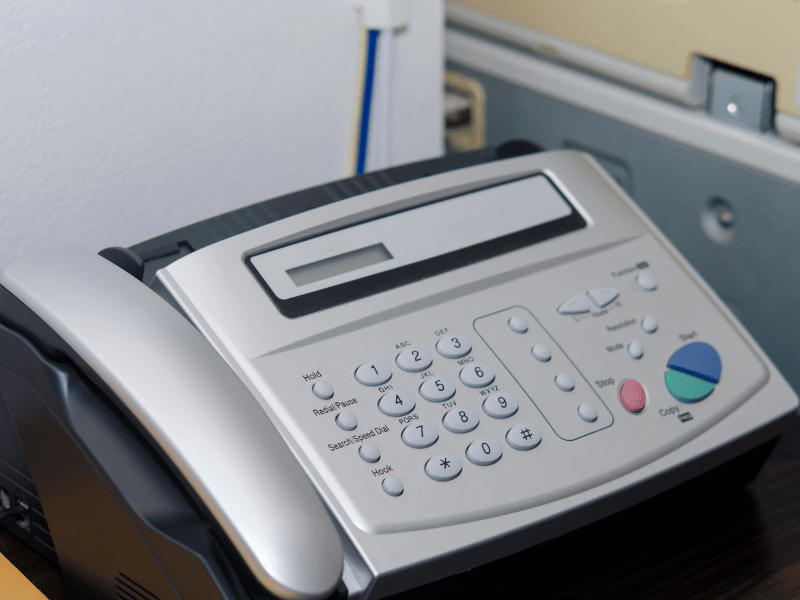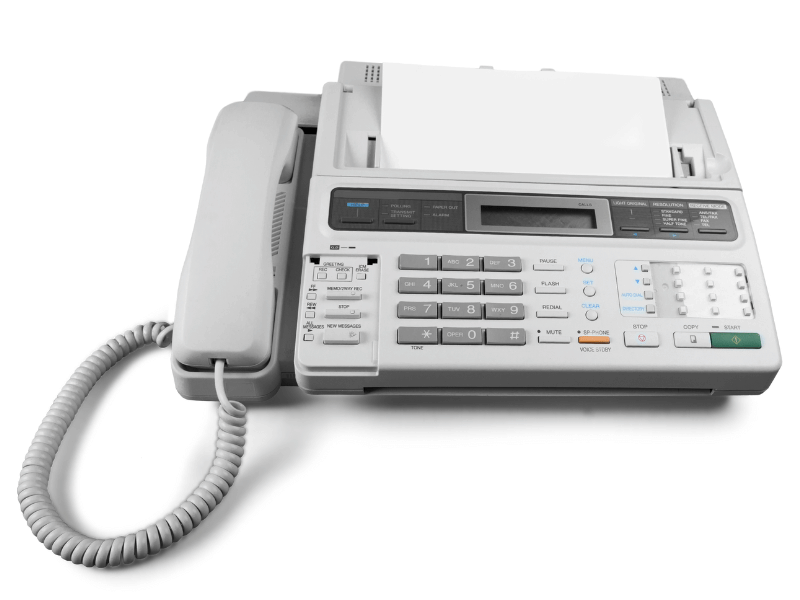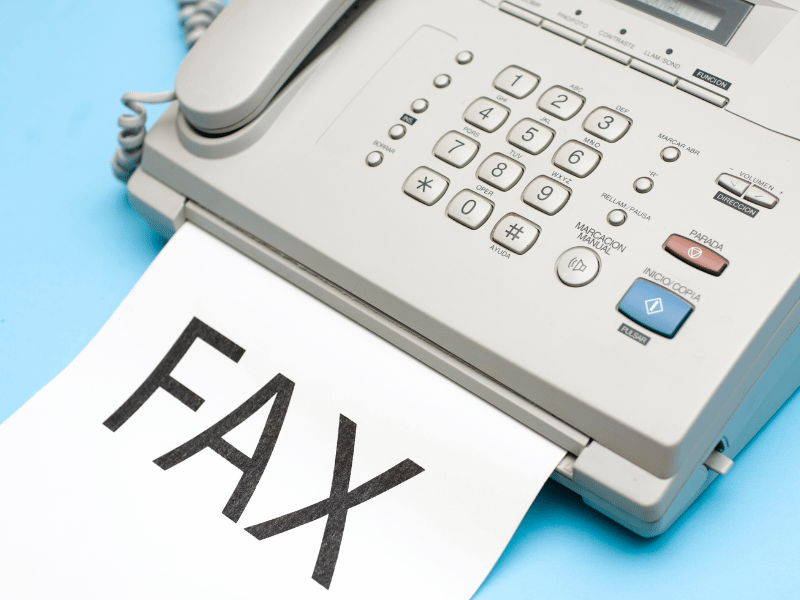Fax machines offer several security advantages, making them a preferred choice for sending sensitive information. Despite the more modern file-sharing options, many of today’s healthcare and government institutions still use fax to send and receive documents.
However, using fax carries its own security risks. It’s also best to seek answers to critical questions like “Can faxes be hacked?” or “Can faxes be intercepted?” as this helps you better understand its security risks and vulnerabilities.
Table of Contents

Understanding Fax Security Risks
Fax machines are often perceived as secure because they transmit data over an analog telephone line rather than the Internet. However, this does not make them immune to security risks. Analog fax machines have multiple vulnerabilities. As the University of Oregon explains, faxes are “more vulnerable to data breaches than encrypted, cloud-based systems.”
However, even modern VoIP and cloud-based fax machines can be vulnerable to hacking and interception. When an online fax service doesn’t provide advanced security measures, the risk of exposing sensitive data to man-in-the-middle attacks and other security threats is higher.
So, can fax lines be hacked or intercepted? The answer is yes. Faxes can be intercepted or hacked by malicious entities, especially if any of these scenarios happen:
- Tapped phone lines
- Sending faxes to the wrong number
- The fax has been viewed and read by an unauthorized receiver
- Lack of adequate security for network-connected fax machines
- Unencrypted VoIP (Voice over Internet Protocol) or cloud-based fax transmissions

Can Faxes Be Intercepted?
Yes, a fax can be intercepted in several ways:
Wiretapping
A fax system that uses phone lines is not foolproof when it comes to security. Skilled attackers can tap into the phone lines and intercept faxes, particularly if the phone line runs outside a secure building or through vulnerable points in the network. They can capture the analog signal and decode it into the original document. Since the information sent over these phone lines isn’t encrypted, malicious entities can easily access and steal your sensitive data during transit.
Unauthorized access
Sending a confidential or sensitive fax to the wrong number could have severe and damaging consequences. While it’s a common human error, it can lead to a significant data breach.
In busy offices, it’s also common for sensitive documents to sit on the fax machine tray for extended periods, allowing anyone who walks by to read them.
Man-in-the-middle attacks
In cases where faxes are sent over VoIP lines, there is a risk of man-in-the-middle attacks. Attackers might compromise the network that you use to transmit the fax. They can then alter the information on your fax document or simply decrypt the data and eavesdrop on your conversation without modifying anything.

Can Faxes Be Hacked?
Yes, faxes can be hacked. While analog fax machines are less susceptible to hacking than digital faxes, modern multi-function devices (MFDs) that include fax features can be hacked. Here’s how a hacker does this:
Exploiting firmware vulnerabilities
Many firmware versions include legacy code that was developed when security was less of a priority. Additionally, hardware constraints such as limited processing power and memory can restrict the implementation of advanced security measures, making it easier for vulnerabilities to exist. Once hackers exploit these vulnerabilities, they can infiltrate the network and access sensitive data.
Network penetration
Can fax machines be hacked? Yes, if you don’t protect your network with firewalls and update your software. Cybercriminals can then access the fax machines connected to the network, steal your data, and hold it for ransom or open fraudulent bank accounts.
Malware infiltration
Hackers can send malicious faxes to exploit your fax machine’s software vulnerabilities. For example, Check Point researchers demonstrated the “Faxploit attack.” Just by knowing an organization’s fax number, they were able to penetrate through fax protocol vulnerabilities in an HP multi-function printer with fax feature and gain access to the entire IT network.
Best Practices for Protecting Your Fax Communications
Can you hack a fax machine? Yes. As stated above, hacking a fax machine and intercepting its fax data is easy. However, the following several best practices can further secure your fax documents:
Use secure fax services
Not all fax services offer the same security features. Investing in a secure online fax service can save you from a data breach. Choose an online fax service like iFax, which protects your data with military-grade encryption, audit logs, HIPAA compliance, and multi-factor authentication.
Verify fax numbers
Always double-check the fax number before sending your document. Sending a fax to the wrong number is an avoidable mistake. This simple but important step can save your fax from being intercepted by malicious persons.
Update firmware, hardware, and software
Update the firmware and software of your multi-function devices and fax machines regularly. Additionally, it’s best to replace defunct fax machines with more modern devices that offer better security features.
Secure your network
Work with your IT team to secure your network. Implement firewalls, VPNs, passwords, access controls, intrusion detection systems, and other security measures to better protect the devices connected to your network.
The risk of malicious users intercepting your faxes is higher when you use a fax machine. The good news is that there’s a secure yet easy way to send secure faxes.
Try iFax’s secure online fax today. Request a demo.







